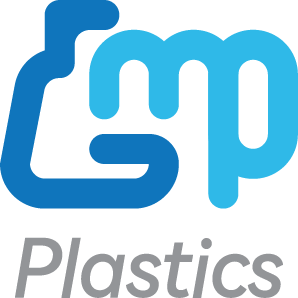What Are BSE and TSE?
Bovine Spongiform Encephalopathy (BSE), commonly known as "Mad Cow Disease," is a progressive neurological disorder that affects cattle. It belongs to a group of diseases known as Transmissible Spongiform Encephalopathies (TSEs), which also include Creutzfeldt-Jakob Disease (CJD) in humans and scrapie in sheep. TSEs are caused by prions—abnormal, misfolded proteins that can induce similar misfolding in normal proteins. Unlike conventional pathogens such as bacteria or viruses, prions are exceptionally resistant to standard sterilization processes and can persist in the environment for extended periods.
The severe implications of prion diseases underscore the importance of ensuring that laboratory plastics and other consumables are free from BSE/TSE contamination. While prion diseases are rare, their potential to undermine research integrity and jeopardize the health of laboratory personnel makes rigorous quality control essential.
How BSE/TSE Can Impact Experiments, Especially Cell Culture
Compromised Cell Culture Conditions
Cell culture experiments require a meticulously controlled environment to ensure that the cells under study are not influenced by external factors. The introduction of prions through contaminated plastics can have devastating consequences:
- Cellular Stress and Death: Prions can interact with cell membranes and intracellular proteins, leading to unexpected cellular stress or even apoptosis (cell death). Such interference not only skews experimental outcomes but can also lead to the failure of long-term cell culture experiments.
- Altered Cell Behavior: Even sub-lethal contamination can trigger changes in cellular behavior. These modifications may include altered metabolic rates, unexpected differentiation, or changes in gene expression profiles. For researchers investigating cellular mechanisms, these unpredictable variations can lead to erroneous conclusions and wasted resources.
- Interference with Experimental Readouts: Many cell culture assays rely on precise measurements of cellular functions, such as enzyme activity, gene expression, and protein synthesis. Prion contamination, even in minute quantities, can introduce artifacts that compromise the validity of these measurements.
Implications for Biomedical Research
Biomedical research often involves the use of highly sensitive assays and intricate experimental designs. Contaminated laboratory plastics can have far-reaching effects, from skewing experimental data to influencing the outcome of drug discovery and therapeutic development processes. This risk is particularly concerning in translational research, where experimental findings are expected to inform clinical practices.
Ensuring that laboratory plastics are BSE/TSE free is therefore essential for maintaining experimental integrity. Researchers can have greater confidence in their results, knowing that the materials used do not introduce confounding variables.
Controlling BSE/TSE Contamination
Raw Material Sourcing
At the heart of our manufacturing process is a commitment to quality. We begin with the sourcing of raw materials from trusted suppliers like Trinseo and DOW. By ensuring the raw materials never come into contact with animals, they are inherently free from prion contamination.
Manufacturing Processes
Our manufacturers employ state-of-the-art production techniques designed to eliminate any risk of BSE/TSE contamination. Some of the key measures include:
-
Controlled Production Environments: All molding is done in a fully automated, touch free ISO 7 cleanroom. Clean plastics start with a clean environment.
Stringent Quality Assurance Procedures
Quality assurance is not a one-time check—it is an ongoing commitment. Our products undergo multiple layers of testing and validation throughout the manufacturing process. Every batch of laboratory plastics is scrutinized to confirm that it meets or exceeds industry standards for BSE/TSE-free materials. This multi-tiered approach provides scientists with confidence that their experimental materials are free from harmful contaminants.
Testing to Ensure Purity
To guarantee that our laboratory plastics are free from BSE/TSE contamination, they are lot tested to ensure they are free of foreign protein contamination.
- ELISA (Enzyme-Linked Immunosorbent Assay): Lots are ELISA tested for protein contamination, especially BSE and TSE like prions.
By investing in high-quality, BSE/TSE-free laboratory plastics, researchers safeguard the integrity of their experiments and contribute to more reliable, reproducible scientific outcomes. Our products are designed to meet the exacting standards of modern laboratories, ensuring that every experiment is conducted in an environment free from the interference of harmful contaminants.

